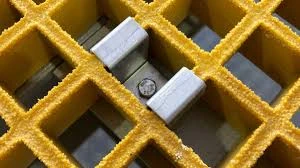
-
 Afrikaans
Afrikaans -
 Albanian
Albanian -
 Amharic
Amharic -
 Arabic
Arabic -
 Armenian
Armenian -
 Azerbaijani
Azerbaijani -
 Basque
Basque -
 Belarusian
Belarusian -
 Bengali
Bengali -
 Bosnian
Bosnian -
 Bulgarian
Bulgarian -
 Catalan
Catalan -
 Cebuano
Cebuano -
 China
China -
 China (Taiwan)
China (Taiwan) -
 Corsican
Corsican -
 Croatian
Croatian -
 Czech
Czech -
 Danish
Danish -
 Dutch
Dutch -
 English
English -
 Esperanto
Esperanto -
 Estonian
Estonian -
 Finnish
Finnish -
 French
French -
 Frisian
Frisian -
 Galician
Galician -
 Georgian
Georgian -
 German
German -
 Greek
Greek -
 Gujarati
Gujarati -
 Haitian Creole
Haitian Creole -
 hausa
hausa -
 hawaiian
hawaiian -
 Hebrew
Hebrew -
 Hindi
Hindi -
 Miao
Miao -
 Hungarian
Hungarian -
 Icelandic
Icelandic -
 igbo
igbo -
 Indonesian
Indonesian -
 irish
irish -
 Italian
Italian -
 Japanese
Japanese -
 Javanese
Javanese -
 Kannada
Kannada -
 kazakh
kazakh -
 Khmer
Khmer -
 Rwandese
Rwandese -
 Korean
Korean -
 Kurdish
Kurdish -
 Kyrgyz
Kyrgyz -
 Lao
Lao -
 Latin
Latin -
 Latvian
Latvian -
 Lithuanian
Lithuanian -
 Luxembourgish
Luxembourgish -
 Macedonian
Macedonian -
 Malgashi
Malgashi -
 Malay
Malay -
 Malayalam
Malayalam -
 Maltese
Maltese -
 Maori
Maori -
 Marathi
Marathi -
 Mongolian
Mongolian -
 Myanmar
Myanmar -
 Nepali
Nepali -
 Norwegian
Norwegian -
 Norwegian
Norwegian -
 Occitan
Occitan -
 Pashto
Pashto -
 Persian
Persian -
 Polish
Polish -
 Portuguese
Portuguese -
 Punjabi
Punjabi -
 Romanian
Romanian -
 Russian
Russian -
 Samoan
Samoan -
 Scottish Gaelic
Scottish Gaelic -
 Serbian
Serbian -
 Sesotho
Sesotho -
 Shona
Shona -
 Sindhi
Sindhi -
 Sinhala
Sinhala -
 Slovak
Slovak -
 Slovenian
Slovenian -
 Somali
Somali -
 Spanish
Spanish -
 Sundanese
Sundanese -
 Swahili
Swahili -
 Swedish
Swedish -
 Tagalog
Tagalog -
 Tajik
Tajik -
 Tamil
Tamil -
 Tatar
Tatar -
 Telugu
Telugu -
 Thai
Thai -
 Turkish
Turkish -
 Turkmen
Turkmen -
 Ukrainian
Ukrainian -
 Urdu
Urdu -
 Uighur
Uighur -
 Uzbek
Uzbek -
 Vietnamese
Vietnamese -
 Welsh
Welsh -
 Bantu
Bantu -
 Yiddish
Yiddish -
 Yoruba
Yoruba -
 Zulu
Zulu
Durable Fiberglass Solutions for Long-Lasting Corrosion Resistance and Reliability in Various Environments
Corrosion-Resistant Fiberglass The Key to Enduring Durability
In a world where environmental factors constantly challenge the longevity of materials, the demand for durable and reliable construction solutions has never been greater. Among the range of materials available, corrosion-resistant fiberglass emerges as a standout option, combining exceptional strength with remarkable resistance to a variety of corrosive elements. This article explores the properties, applications, and benefits of corrosion-resistant fiberglass, highlighting why it is a preferred choice for enduring durability in various industries.
Understanding Corrosion-Resistant Fiberglass
Corrosion-resistant fiberglass is a composite material made from a polymer matrix reinforced with glass fibers. This unique combination grants fiberglass incredible tensile strength while simultaneously maintaining a lightweight profile. The resin used in fiberglass composition is often specially formulated to resist degradation caused by chemicals, moisture, and UV radiation, making it particularly useful in harsh environments.
The inherent properties of fiberglass allow it to withstand extreme temperatures and humidity levels without warping or deteriorating. Unlike traditional metals, which can corrode over time due to oxidation and exposure to atmospheric elements, fiberglass remains stable and retains its structural integrity, making it an appealing choice for various applications.
Applications Across Diverse Industries
Corrosion-resistant fiberglass finds applications across a wide range of industries, including construction, marine, chemical processing, and wastewater management. In the construction sector, it is commonly used in building facades, roofing systems, and flooring materials. Its lightweight nature reduces the load on structures, while its resistance to moisture prevents mold and mildew growth.
In the marine industry, fiberglass is a staple material for boat manufacturing and repairs, as it can endure the relentless assault of saltwater, ensuring the longevity of vessels. It is also used in the production of tanks and piping for chemical processing plants, where it effectively handles corrosive chemicals that would otherwise degrade metal components.
Additionally, in wastewater treatment facilities, fiberglass tanks and structures are used to contain and process sewage and effluent without risking leakage or contamination
. The ability of fiberglass to resist aggressive chemicals and high levels of moisture makes it an ideal choice for such critical applications.'corrosion-resistant fiberglass for enduring durability.'

Environmental Benefits
From an environmental perspective, the use of corrosion-resistant fiberglass contributes to sustainable practices. Its long lifespan reduces the need for frequent replacements, lowering material waste over time. Being non-conductive, fiberglass also minimizes the risk of corrosion-related accidents, further promoting safety in industrial settings.
Moreover, many manufacturers are now focusing on eco-friendly resins, increasing the sustainability of fiberglass production. By choosing fiberglass materials, industries can align their operations with environmentally responsible practices while enjoying the benefits of durability and resilience.
Cost-Effectiveness and Maintenance Advantage
While the initial investment in corrosion-resistant fiberglass may be higher than that of some traditional materials, the long-term cost-effectiveness is undeniable. The durability of fiberglass reduces maintenance and replacement costs, as it does not require regular protective coatings or treatments to extend its life. Additionally, its lightweight nature often results in lower transportation and installation costs, making it a financially sound choice.
The minimal maintenance required for fiberglass also translates to reduced downtime in industrial applications, which can be critical for maintaining productivity and reducing operational interruptions. This efficiency adds another layer of appeal for industries considering the switch to fiberglass-based solutions.
Conclusion
Corrosion-resistant fiberglass represents a remarkable advancement in material technology, offering the perfect solution for durability in the face of challenging environmental conditions. Its diverse applications across industries, combined with its environmental benefits and cost-effectiveness, make it an attractive choice for builders, manufacturers, and engineers alike. As we continue to seek materials that stand the test of time, the role of corrosion-resistant fiberglass in creating resilient and enduring structures cannot be overstated. Embracing this material allows industries to not only enhance their operational efficiency but also contribute to a more sustainable future.









